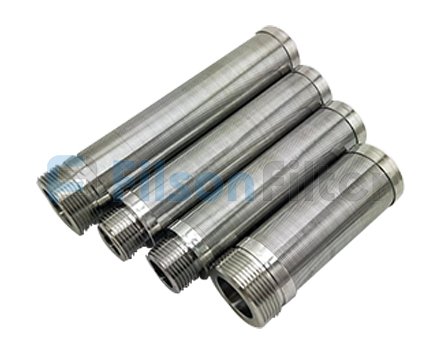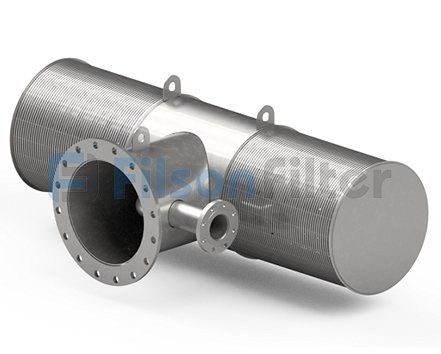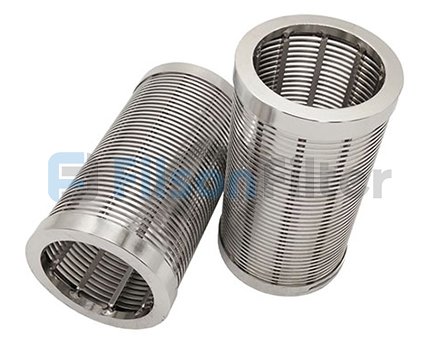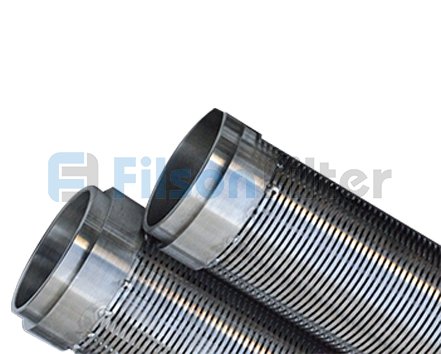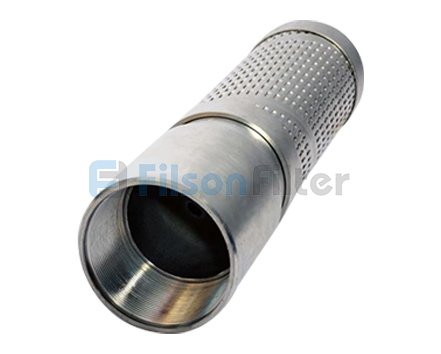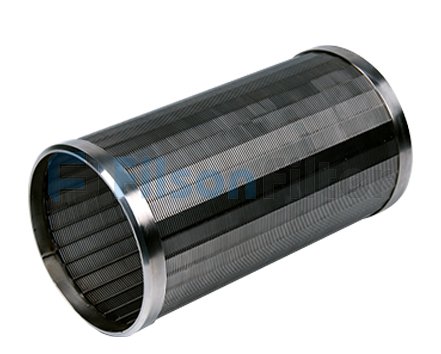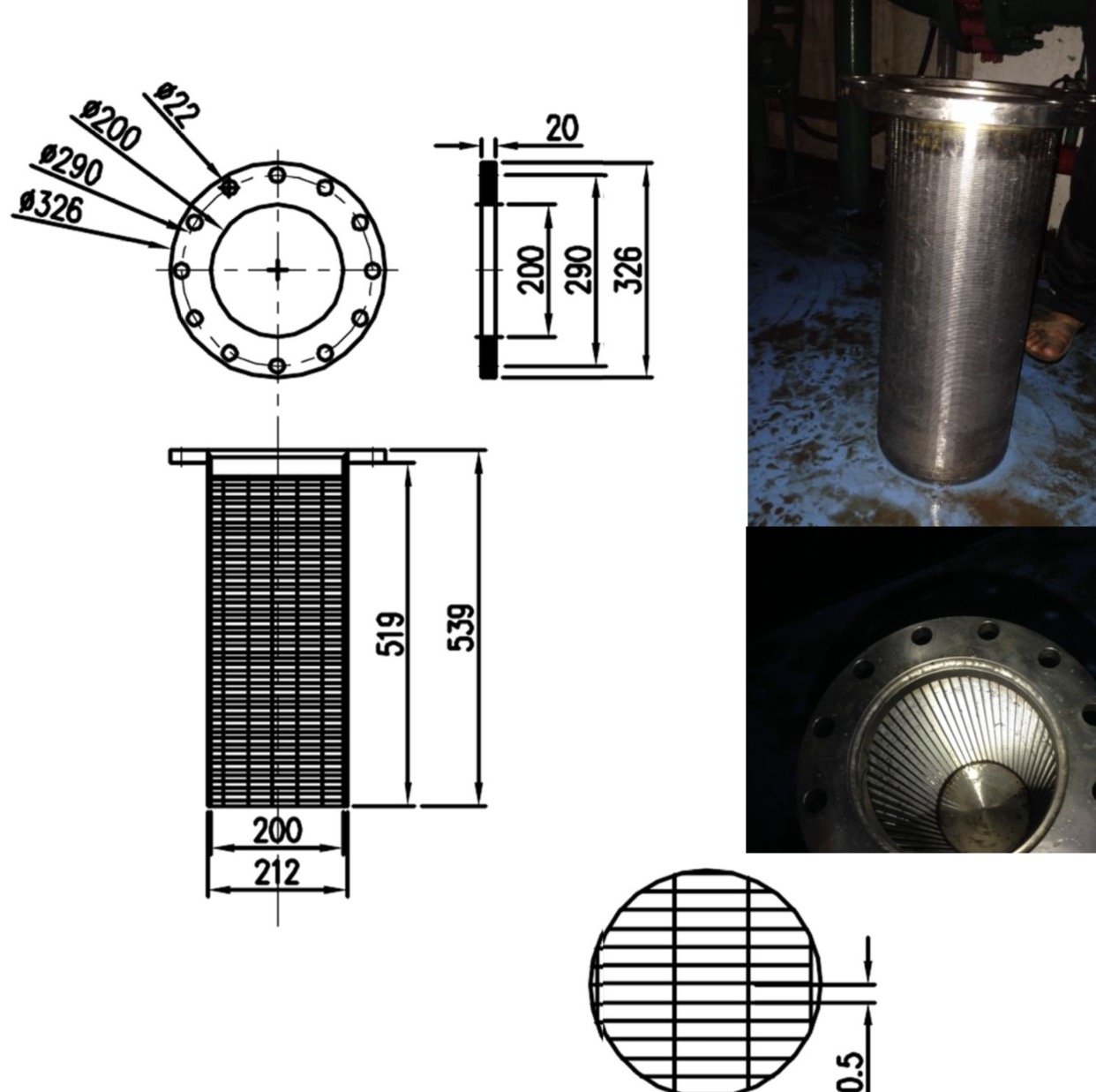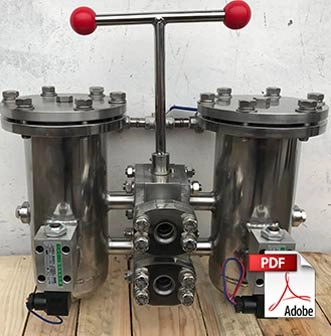Your Specialist & Reliable Manufacturer and Supplier of Johnson Screens
Filson is one of the most professional manufacturer of johnson screens in China. For almost 20 years, Filson has assisted hundreds of worldwide customers to choose their johnson well screens in various applications, including surface water treatment, food&beverage processing, pulp and paper, oil&gas, mineral, and architecture industries.
OEM service is always our strength. Filson needs to do more than fabricate johnson well screens, we provide you unique designs from material, structure, micron rating to flow rate. Give Filson a chance and then you will obtain a satisfied johnson screen solution.
Johnson Screens
Why Filson Johnson Screen?
QUALITY
We manufacture johnson screens with the highest grade raw materials with material certificate EN10204 3.1 and advanced production equipment, thus supply you with the top-class johnson well screens.
EXPERTISE
Our seasoned team of engineers and technicians has rich design and production experience of johnson well screen to ensure we give you the best solution.
INVENTORY
We have a complete production line and sufficient stock of johnson well screens, therefore we can satisfy your urgent order with large quantity.
SERVICE
We are not just a johnson screen distributor, we are your best business partner. Our dedicated support team will always at your service to help you finish your project successfully.

Filson: Premier Factory Selection of Johnson Screens in China
Filson johnson screen is also known as johnson well screen, a wedge wire screen, is a multifunctional screen consisting of triangle-shaped metal wires and support bars. Johnson screen type is one of the most common types of industrial fluid filtration on the market.
Through a welding process, the Filson johnson well screen has the characteristics of high mechanical strength and robust structure. This will help it to perform well even under high pressure or large flow rate conditions.
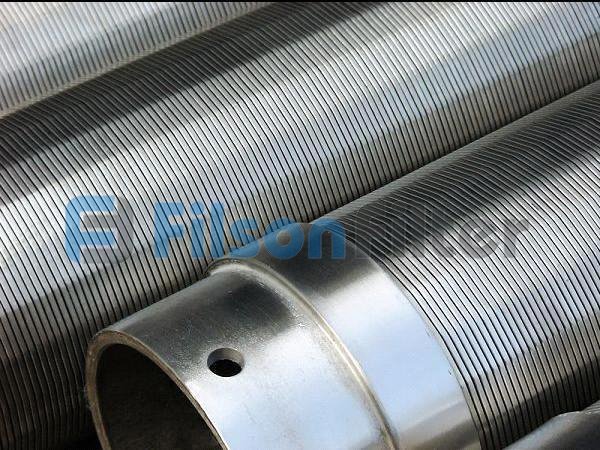
Filson johnson screen offers high open area with standard slot sizes of 0.05mm-10mm, with filtration accuracy of 15-800μm. Besides, custom slot size and micron rating are available to fit your industrial applications and benefit your business.
A variety of shapes of Filson johnson well screen are available, such as panel, cylinder, conical, tube, basket, or filter cartridge formation. If you want a harder construction, we usually choose to increase support profiles or add a perforated plate as a jacket-wearing outside.
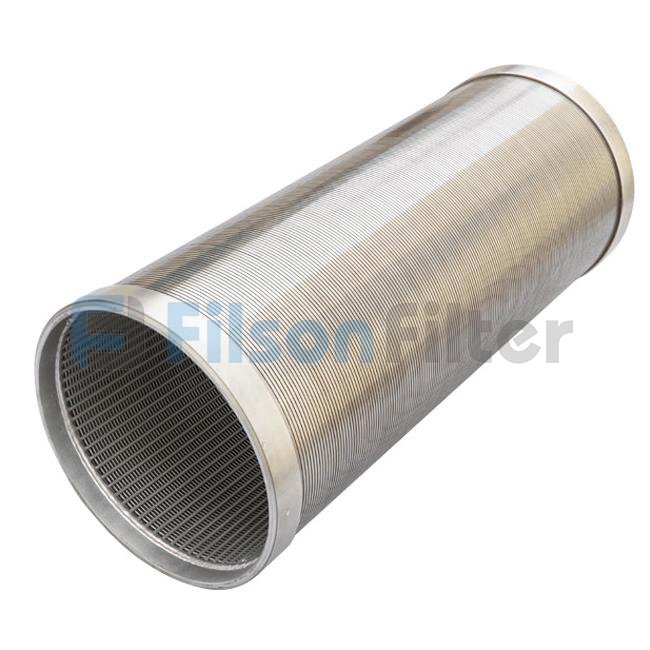
All Filson johnson screens products can be constructed out of stainless steel 304, 316L and 904L. Certainly, other corrosion-resistant alloys are available at your request. And we will recommend the optimum material for you according to your specific purpose.
Filson johnson well screen has a superior anti-clogging feature. But inevitably, some unwanted contaminants will block your johnson screen. Don’t worry, the unique design of Filson johnson screen can be cleaned easily by high-pressure air or water jetting methods.
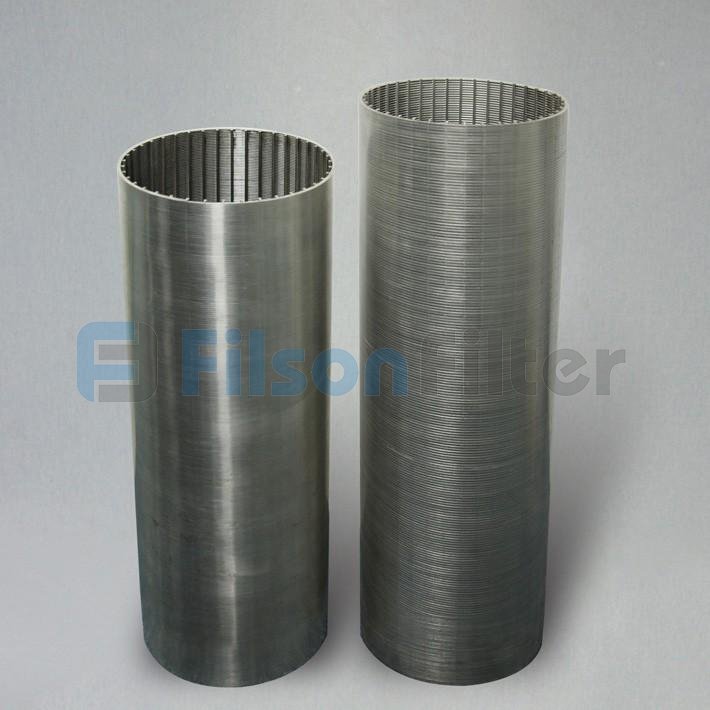
Meanwhile, johnson screens from Filson offers back washing capability since its wedge structure. Some products made by Filson johnson screens are permitted to add an airburst system for self cleaning, like water intake screens.
Along with the acclaimed Filson johnson screens, we also provide the following: sintered mesh screen, sintered metal filter, high flow filter cartridge, wire mesh filter, basket filter… Each product from Filson is subject to exacting tests and quality inspections at all stages of manufacture.
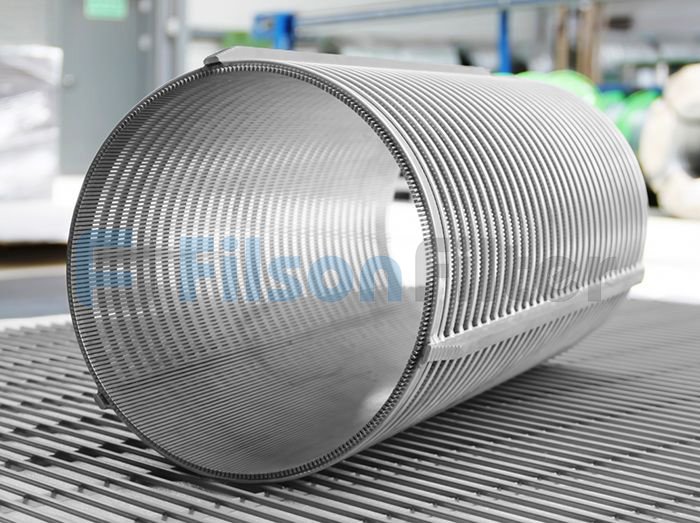
Furthermore, Filson can offer the free sample for you if you wan to check our johnson well screens quality. And we also provide you with a specialized discussion of Filson johnson screens with our expert engineers.
Got questions about Filson johnson screens? Give us a call: +86 157 3695 8886
Other information? Send us an email: sales@filsonfilters.com
Please do not hesitate to inquire us, all Filsoners will get back to you within 12 hours!
Filson Johnson Screen Features:
- High hardness to withstand high pressure
- Easy to clean with several cleaning methods
- Anti-clogging to reduce maintenance costs
- Support to backwash without interrupting operation
- Smooth and flat surface to provide uniform flow
- Large load capacity benefits by welded construction
- Exceptional corrosion resistance to prevent rust
- Preeminent temperature change adaptability for harsh environment
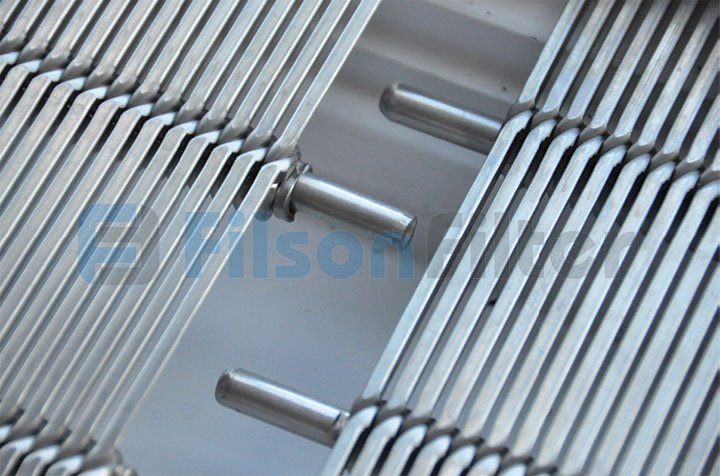
Filson Johnson Screen Applications:
- Water infrastructure
- Surface water treatment
- Food and beverage industry
- Pulp and paper processing
- Oil and gas industry
- Mining & Mineral industry
- Architecture & Decorative industry
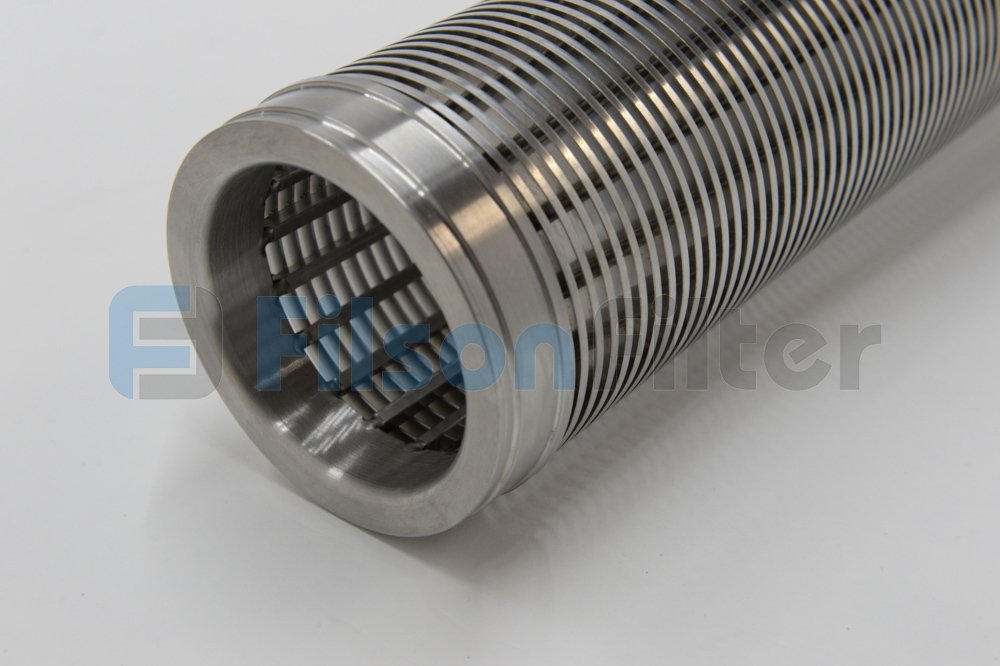
Filson Johnson Screen Specifications:
- Raw material: SS 304, SS 316L, nickel, monel, hastelloy, titanium and other alloys
- Common mesh rating: 100, 125, 200, 250, 500, 750, 100, 1250
- Slot size: 0.05mm -10 mm
- Filtration accuracy: 15μm – 800μm
- Panel width: 500 mm – 2000 mm
- Panel length: 500 mm – 3000 mm
- Shape: panel, cylinder, conical, basket, tube, nozzle, special-shaped…
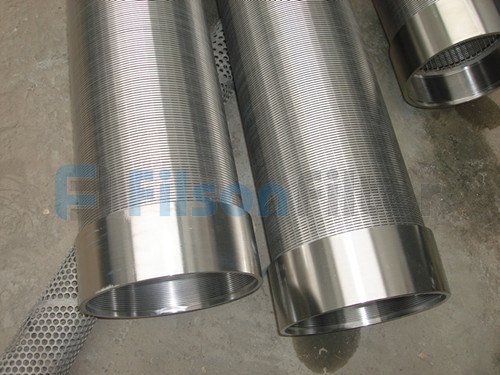
People Also Ask
Johnson screens find use in industrial filters that you employ in various industries such as oil and gas.
You also use Johnson screen in water wells where you find it in a continuous slot design as a wire wrap.
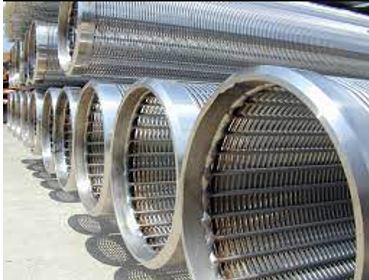
Johnson Screens
There are various Johnson screens covering equipment for input screening, clarifying, solids screening, filtration, grit separation and treatment, and sludge dewatering.
Furthermore, you have different types of Johnson screens such as rotary drum screens, intake screens and rake bar screens.
You find Johnson screens employed in industrial filters across various applications such as:
- Flat panel Johnson screens in malting plants aid in the mixing process of the turning phase enhancing ventilation during kilning.
- Johnson screens find use in food processing plants due to their anti-heat and corrosion qualities.
- You employ Johnson screens in the pulp and paper plants in debris removal, fiber fractionalization, dewatering water purification among other processes.
- Corn wet milling plants which employ different Johnson screens such as fine wire mesh and looped wire.
- Sugar mills employ Johnson screens in the washing and dewatering process for solids retention.
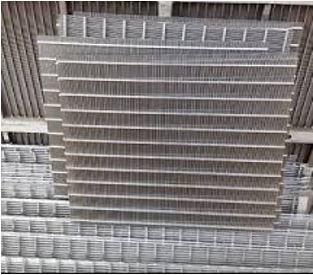
Johnson Screen In Pulp Screening And Fractionation
In the selection of a Johnson screen, the following factors are important:
High Mechanical Strength
Your Johnson screen selection should have the capacity to resist the tensile forces resulting from its own weight during installation.
Additionally, it shouldn’t succumb to resulting radial compressive forces.
Corrosion Resistance
While the quality of water is crucial, it is not the only element.
Corrosion can develop when the materials you utilize are incompatible with the area of application of the Johnson screen.
Slot Size Selection
The slot size of your Johnson screen should provide a sufficient open area.
Where you have a very small slot size, you easily experience blockage comparatively particles can infiltrate a very large size.
Pressure Drop And Flow Rates
The water velocity as it ascends inside the screen should not exceed 1.5 meters per second.
Alternatively, the water velocity of the through-slot should not exceed 3cm/sec.
Consequently, the pressure drop when compared to friction losses is modest as the flow ascends in the screen.
Gravel Pack Selection
You can develop fine and inconsistent material naturally, while a filter pack is best for coarse and consistent material.
Typically, when at least two thirds of the particles are less than 0.75mm, a filter pack is preferable.
Furthermore, the screen slot retains ninety percent of the filter pack.
Collapse Strength
Johnson screens have to be tolerant to natural formation pressure as well as other multiple radial pressures.
When considering the collapse strength of Johnson screens, you consider the dimensions of the wire and the available shapes.
Vee-Wire Johnson screens provide exceptional structural strength with V-shaped openings.
These openings permit only a pair of contact points with gravel minimizing blockage and easier cleaning.
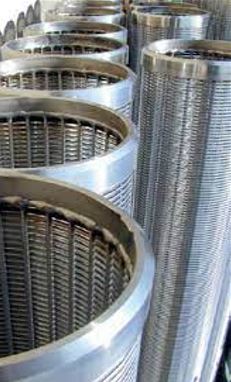
V-Wire Johnson Screens
You make the Vee-Wire Johnson screen by welding the wires in V-shapes to support rods of different sizes and shapes.
Using this method provides an inwardly expanding slot with a broad open area and clog-resistant surface.
You can employ Vee-Wire Johnson screens for gas-solid and liquid-solid separation.
You achieve a long service life for employing this Johnson screen type due to its great strength and high adaptability level.
You achieve fine solids separation by employing Johnson Screens’ 120° sieve bend boxes. Here, you observe pumping of the slurry continuously onto the Johnson screen.
In this case, the liquid drains through the slots with the particles settling to the bottom.
You employ 316L stainless steel in the construction of 120° sieve bend boxes with single, double, and triple screen units available. Sight doors allow you to keep an eye on the flow.
The process flow in the 120° sieve bend boxes allows equal distribution through nozzles. This design extends the life of the Johnson screen by up to 30%.
You can employ the 120° sieve bend boxes in Johnson screens in applications involving separation of liquid-solid.
You also find these equipment essential in the removal of fibre from starch and food processing such as wet corn milling.
Yes.
The percentage of the open area of the Johnson screen determines its screening ability.
When you employ Johnson screens with 120° sieve bend boxes, you achieve smaller wire profiles with an increased open surface.
You can have wires as thin as 0.5 mm and as thick as 0.25 mm when employing looped wire and welded construction.
The smaller size and weight of the display minimizes the danger of harm.
You can employ Johnson Screens with 120° sieve bend screens in both static and vibratory assemblies.
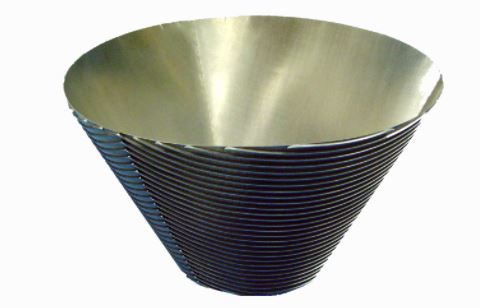
Conical Johnson Screen
You employ the conical Johnson screen in media retention applications where you remove the media for regeneration or reactivation.
The angled sides and obvious center outlet of conical Johnson screens’ allows for easy media removal.
You employ conical Johnson screen in centrifuges in dewatering procedures.
The conical Johnson screen is self-supporting and engineered to handle the extreme stresses and load conditions seen in these procedures.
You can increase the capacity of the screens by furnishing a precise slot opening and employing an open are of large percentage.
The conical Johnson screens has high resistance to foreign object damage, abrasion and corrosion resulting in lower maintenance.
The Johnson Cossette screen finds use in the industrial processing of sugar beet in Cossette mixers and diffusion towers.
Besides, the juice from the sugar beet gets screened as it passes through the Cossette mixers and diffusion towers.
The heavy-duty design and framing assembly, makes the Johnson Cossette screen durable and endure longer than a slotted plate.
You find these screens furnished from stainless steel or carbon steel with strong abrasion resistance and reduced clogging.
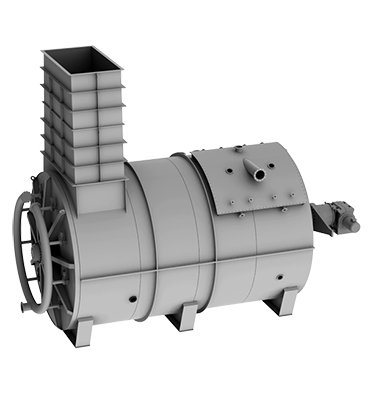
Johnson Cossette Screen Is Found In The Cossette Mixer
You can employ the Johnson screen cylindrical strainers in both outside-to-inside filtration and inside-to-outside filtration.
You find the following configurations for outside-to-inside filtration:
- Standard: This configuration includes circumferential wire on the outside and axial support rods on the inside.
You can employ this design for diatom candle filters, filter cartridges, header laterals, revolving sieve screens, resin traps, and others.
- External axial wire: Here, you have an external axial wire with support rods of internal circumferential employing automatic filters.
- Channel rod construction: You substitute the internal support rods with perforated U-section channels.
The flow is outside-to-inside when you employ the screen as a collector.
Beside, the flow is inside-to-outside when you employ it as a distributor.
This design finds use in applications such as oil refining, water treatment and ion exchange.
For inside-to-outside filtration, you have the following constructions:
- Internal Circumferential Wire: This construction uses external support rods to develop an unhindered internal screen face.
- Internal Axial Wire: The configuration forms long and extended slots. You can move media vertically with abrading and lateral to the wire edges in horizontal rotating applications.
- Inverted Wire: You also employ internal supports while presenting the face of the wire to the cylinder interior.
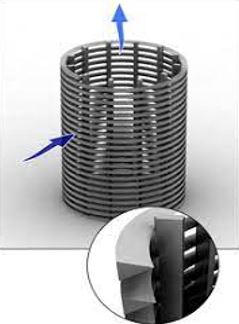
A Cylindrical Strainer Found within A Johnson Screen
Johnson screen digester screen baskets can support increased throughput while offering you high wear resistance.
Consequently, you can furnish these screens with larger open area.
You employ Johnson screen digester baskets in the chemical pulping process where you position it in a digester tower.
You can present the baskets with perforated plates or Vee-wires.
You have various drum screens you can employ in water treatment such as the continuous flow micro filter drum screen.
This particular drum screen employs a mesh that thickens sludge, separates liquids and solids, recovers fibre and dewaters.
You find the following screen accessories that you can employ with Johnson drum screens:
- Milliscreen
- Screen compactor
- Suboscreen, and
- Rotary thickener
You can have Johnson flat panel screens made from tiny wires and rods allowing their use in fine-screening.
Alternatively, you can have these screens with larger wires and rods for use in heavy-duty applications.
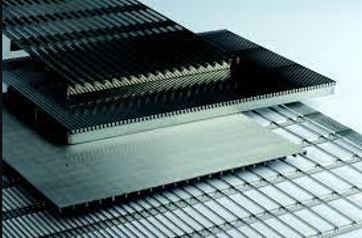
Johnson Flat Panel Screen
You can employ Johnson flat panel screens with different slot sizes in various industries including:
- Sugar production mills
- Pulp and paper factories
- Malting processors
- Drying vibratory panels
- Starch production houses
- Dewatering vibratory panels
- Machine coolant filtration
- Food and beverage applications
- Sludge dewatering
The Johnson screens in in-line mixers encompasses distinctive internal design that harnesses line pressure creating high turbulence degrees.
This in turn improves fluid additive mixing with the product stream.
Using the inline mixer is beneficial since it requires no special equipment or additional components to install.
Furthermore, it has no moving parts, making it essentially maintenance-free.
You also find the following additional advantages:
- The in-line mixers can handles higher rates of flow.
- You achieve improved mixing performance.
- The energy consumption is lower.
- The back-pressure during operation is low.
An inline strainer, is a safety device that protects ion exchange units and activated carbon and media filters from overflow.
A valve malfunction can cause media to escape from the treatment equipment in many systems.
While loss of valuable media is costly, it can also cause damage to pumping equipment downstream.
Employing inline strainers in Johnson screens provides effective protection collecting media of any size.
Johnson screens in in-line strainers have the following features:
- A continuous slot design allowing traps to restrict media particles of any size while allowing the process flow to run freely.
- Construction using stainless steel and other alloys based on the pressure and temperature values.
- Different shapes, sizes and connections based on the process flow parameters.
- Capacity to handle the entire system pressure.
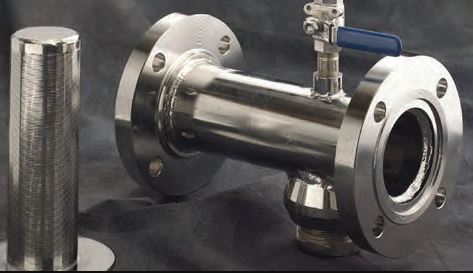
In Line Strainer
Johnson screens lateral systems effectively retain media in various applications.
You can connect such a system to a central hub employing several lateral screens for constant media treatment collection and distribution.
A Johnson screen lateral system can accommodate various sizes and shapes of vessels. These vessels can employ inlet piping at the top, bottom, center or side.
Furthermore, the design of a Johnson screen lateral system is such that it can accommodate flow in any direction.
You can also employ threaded fittings, couplings or fringes fir the lateral system’s connections.
You can employ Johnson screens in the following pressure equipment:
- Johnson pressure screen baskets which you can find in different configurations such as electron beam drilled, wedge wire or milled slotted.
- Johnson pressure screen filter which consists of a perforated plate whose hole diameters do not exceed 0.20 mm. Such a filter prevents the plugging and stringing of the water nozzles.
- Johnson pressure vessel internals offer you improved resistance of plugging and hence high media retention. The pressure vessel internals have a large open area characterized by low pressure drops and accurate slot tolerance.
You find the following reasons sufficient to purchase Johnson screens:
- Johnson screens have high engineering standards and custom design with support from conceptualization to completion.
- Johnson screens have the most rigorous manufacturing standards making them extremely durable with high resistance characteristics to abrasion and corrosion.
- The product’s tough construction and use of high-quality materials allows you to utilize it for longer with less care.
- Johnson screens’ true cost to plant operators is low thanks to improved operating efficiency, longer service life, and less maintenance requirements.
You find many Johnson screens constructed from stainless steel. Common variants employed include:
SAE 304
You find this is the most prevalent type of stainless steel. The primary non-iron elements in the steel are chromium, about twenty percent, and nickel, about ten percent.
SAE 304 is a stainless steel that is austenitic. It is frequently used because it is easy to mould into various shapes and has a stronger corrosion resistance than normal steel.
SAE 304L
After SAE 304, SAE 316L grade stainless steel is the second most prevalent austenitic stainless steel. Alongside iron, the most common alloying components are chromium (18%), nickel (12%), and molybdenum (3%).
You also find minor amounts of silicon, phosphorus, and sulfur (1%) present.
The inclusion of molybdenum gives stronger corrosion resistance than 304 from localized corrosive attack by chlorides and reducing acids.
SAE 904L
Also, an austenitic steel, inclusion of molybdenum gives it improved resistance to localized chloride attack and greater resistance to reducing acids.
Its copper composition gives it blank corrosion resistance to sulphuric acid concentrations compared to 316L.
SAE is also more resistant to cracking resulting from chloride stress corrosion due to its high alloying concentration.
It has little carbon amounts making it resistant to welding sensitization and inhibits intergranular corrosion.
A Johnson Screen Grip flush threaded casing allows you to install the casing faster.
You employ the Johnson screen grip flush threaded casing with PVC piping possessing a female machined holding groove.
Consequently, installing with a PVC pipe with a large diameter is hassle free. You can find the grip flush threaded casing for PVCs and slotted screens with stainless steel completions.
You can find the Johnson Screen Grip flush threaded casing of 4-16 inches. Unlike solvent-weld belled connections, the Johnson Screen Grip flush threaded casing’s bore hole is smaller with no time settings on connections.
There are several advantages you derive from using the male to male drop pipe with Johnson screen:
- When you employ the pipe with a stainless steel coupling, it prevents corrosion extending its service life.
- You have a variety of sizes available for your stainless steel coupling ranging from one to eight inches.
- Aligning and engaging the male to male drop pipe with Johnson screen is simple.
- You can achieve a quick makeup while providing a watertight seal.
- You can have the coupling pre-installed upon order reducing the risk of an unsatisfactory job on site.
Sometimes conditions are unfavorable to support the use of conventional filer packs.
The Johnson screen V-pack overcomes this deficiency by employing a filter pack that can overcome these conditions.
The V-pack contains a gravel pack supported in position by a pair of concentric screens. You find the V-pack has a reduced borehole, limited cuttings and sampling that is sediment free.
Additionally, a V-pack comes with a filter pack of re-sieved silica sand, even and free of voids. The construction encompassing sonic welds prevents entry of solvents that can hamper the integrity of samples.
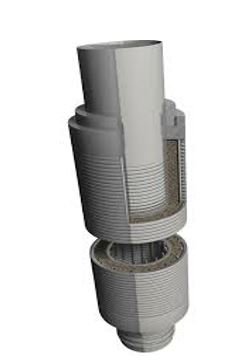
Johnson Screen V- Pack
Economic considerations resulting from extra work when working with Johnson screens in wells has put a spotlight to sand control.
Sand control is central to the reliability of Johnson screen production and thus productivity.
If unregulated, sand can cause catastrophic and infantile failure of Johnson screen equipment. When sand bridges form in the channel, an obstruction of flow is bound to happen.
Consequently, casing and lining failure can follow resulting from compaction or attrition of the formation.
Sand control allows you to prevent such challenges in addition to managing and dealing with sand formations.
More Resources:
For all your Johnson screens, contact FilSon Filters.
